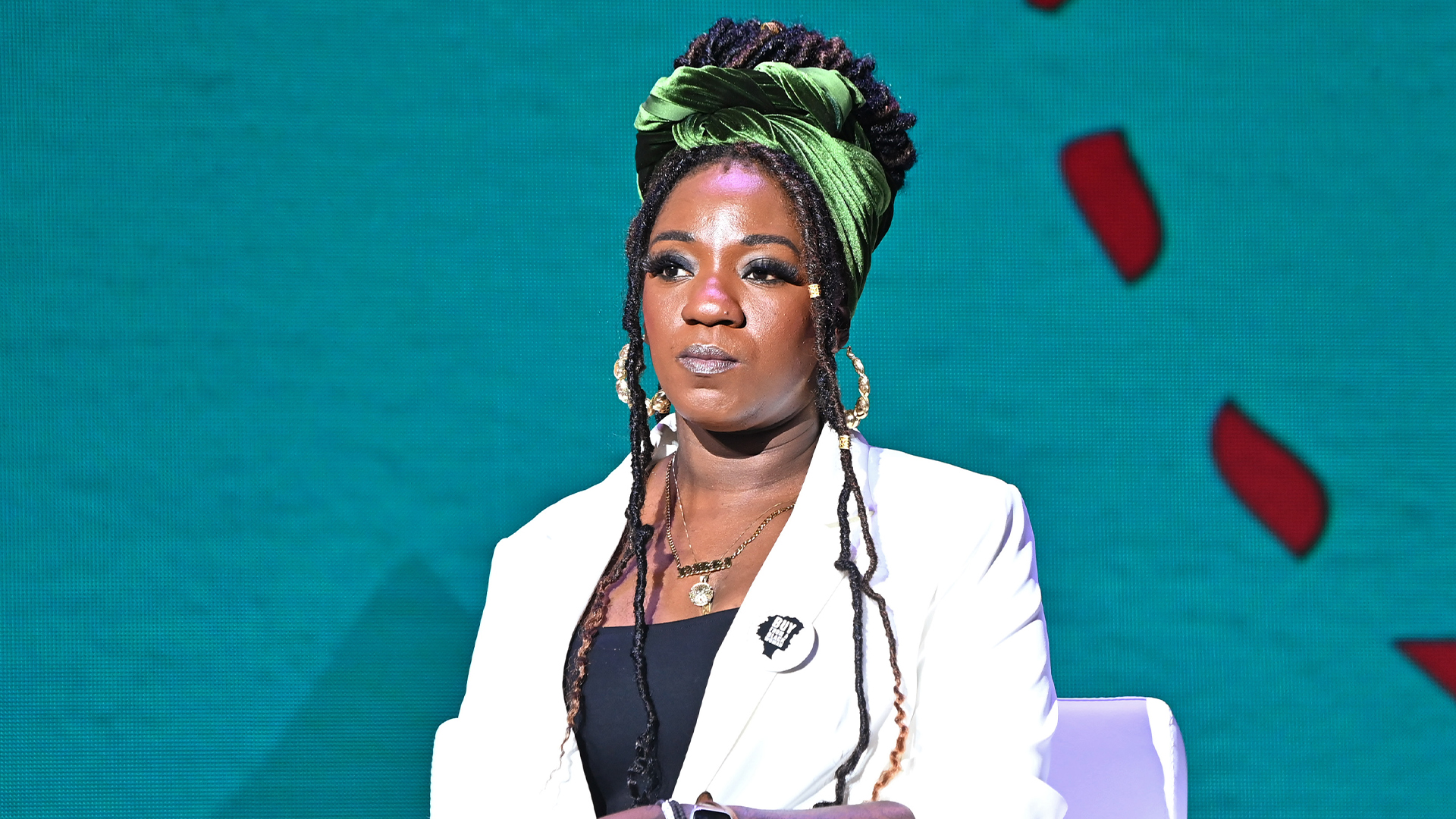Showing 124 results for:
commitments
Popular topics
All results

Costco’s consumer base is on the rise. According to Retail Brew, the retailer has continued seeing an increase in its foot traffic, having reached its 13th consecutive week during the week of March 17. Costco’s influx of customers is in part due to its decision to uphold diversity, equity, and inclusion (DEI). It sparked a “buy in” led by Civil Rights activist Rev. Al Sharpton in January 2025 at Costco Wholesale, 1055 Hudson St., in Union, NJ. “We are planning to release a boycott list in the coming days,” Sharpton told TMZ at the time. “But in the interim, we are going to do a ‘buy-cott,’ which means we are going to support those who support diversity.” As AFROTECH™ previously told you, Costco’s board of directors requested for its shareholders to vote against a proposal from the National Center for Public Policy Research (NCPPR) that would dismantle its DEI programs. “Our success at Costco Wholesale has been built on service to our critical stakeholders: employees, members, and...

Google is doubling down on its move away from DEI goals. As AFROTECH™ previously reported, a shift away from diversity, equity, and inclusion (DEI) have been occurring across the nation. This has been seen in the venture capital space, with funding for Black-owned businesses being challenged in court. At the federal level, when he took office President Donald Trump signed an executive order to dismantle DEI-related “mandates, policies, programs, preferences, and activities” in the federal government, Business Insider notes. These changes, combined with political and legal pressures, have driven major companies to rethink their DEI initiatives. Some big tech companies, such as Meta, Amazon, and Google, have retracted their DEI commitments. “We’re committed to creating a workplace where all our employees can succeed and have equal opportunities, and over the last year, we’ve been reviewing our programs designed to help us get there,” a Google spokesperson told Business Insider in...

Verizon is receiving pushback for upholding its DEI commitments. As AFROTECH™ previously told you, pressures from conservative groups and efforts by President Donald Trump’s White House to dismantle DEI-related policies and programs have led major companies such as Meta, Amazon, and Google to follow suit. “We’re committed to creating a workplace where all our employees can succeed and have equal opportunities, and over the last year, we’ve been reviewing our programs designed to help us get there,” a Google spokesperson told Business Insider in February. Not all companies are shifting gears. In fact, Apple’s shareholders voted against a proposal that would dismiss its diversity and inclusion program in February 2025. Additionally, Verizon is maintaining its DEI stance and sees it as a vehicle for success. “Verizon is committed to fostering an inclusive environment. We care about diversity in both our employees and our suppliers. Diversity and inclusion is how we achieve success,” a...

Coca-Cola remains committed to its diversity, equity, and inclusion (DEI) initiatives, saying that neglecting these efforts could do more harm than good for its business. According to Business Insider, Coca-Cola’s annual filing states that fostering an inclusive workplace culture is “critical” to its growth and success. “Our diverse, high-performing global employee base helps drive a culture of inclusion, innovation and growth,” the company stated. “We aspire to develop a global workforce with diverse perspectives, experiences and backgrounds that reflect the broad range of consumers and markets we serve around the world.” Coca-Cola warned that failing to entice and retain this specialized top-tier talent could lead to negative consequences for its growth and future success. The company added that it remained committed to “providing access to equal opportunities and fostering belonging both in our workplaces and the local communities we proudly serve,” saying the opposite could...

Goldman Sachs Group Inc. has changed its stance on underwriting initial public offerings (IPOs) for companies with all-white male boards. In 2020, CEO David Solomon announced that the leading investment bank would only take a company public in the United States or Western Europe if the organization had at least two diverse board members, one of whom was a woman, AFROTECH™ previously reported. However, as of Tuesday, Feb. 11, 2025, Goldman’s IPO requirement is null and void, according to Bloomberg. “As a result of legal developments related to board diversity requirements, we ended our formal board diversity policy,” said Goldman spokesperson Tony Fratto, Bloomberg reported . “We continue to believe that successful boards benefit from diverse backgrounds and perspectives, and we will encourage them to take this approach.” Goldman’s 12-member board currently includes two people of color , one of whom is a woman. Among the bank’s executives, 73% are white, with 56% being men. Data...

In a decision reflecting a broader trend in the corporate world, Google has eliminated its diversity-based hiring targets and quietly erased language relating to Diversity, Equity, and Inclusion (DEI) from its annual report. This decision isn’t just a corporate policy update. This move aligns with a growing trend of companies scaling back public commitments to DEI in response to evolving legal and political pressures. The ripple effect of this change reaches far beyond Silicon Valley, raising urgent questions about the future of workplace diversity, corporate responsibility, and the very fabric of inclusive leadership in America. Google Shifts Away From DEI Metrics According to Reuters, Google’s move came after the company abandoned its diversity hiring goals, which were initially designed to foster a more inclusive workforce. The company cited the impact of recent court decisions and executive orders from the Trump administration as pivotal factors influencing this change. These...

Progress is often only seen as positive based on the sustainability measures associated with it, and many organizations have not kept their promises regarding diversity, equity, and inclusion (DEI). This abandonment informs many (DEI) advocates’ perspectives when explaining the recent rollback of DEI programs at large and small corporations. The removal of equity-focused programming is not new. According to a previous AFROTECH™ report, many companies that made commitments to DEI in 2020 after the murder of George Floyd have dialed back or cut programs. Now, Microsoft is among the big-name companies, specifically in tech, that have decided to eliminate their intentional strategies around DEI. The pervasive question to these cuts is “why?” According to Business Insider, it was due to “changing business needs.” “True systems-change work associated with DEI programs everywhere are no longer business critical or smart as they were in 2020,” a leader of the laid off DEI team wrote in an...


Michael Jordan, together with his eponymous Jordan Brand, has announced a new set of financial initiatives for Black excellence. In a press release announcement, it was revealed that they’ve issued grants to three renowned institutions: Morehouse College, a popular Historically Black College and University; Smithsonian Institution’s National Museum of African American History and Culture; and Ida B. Wells Society for Investigative Reporting. Jordan will be donating $3 million to the Smithsonian over the course of three years. He will be donating $1 million over two years to Morehouse, and he will be donating $1 million over two years to the Ida B. Wells Society. “Education is crucial for understanding the Black experience today,” says Michael Jordan in the press release announcement. “We want to help people understand the truth of our past, and help tell the stories that will shape our future.” Legendary director Spike Lee, a 1979 graduate of Morehouse College, said that Michael...

Florida A&M University (FAMU) has lost a significant grant that helped produced 60% of the nation’s Ph.D. graduates in pharmaceutical sciences. According to the Tallahassee Democrat, the Historically Black College and University’s (HBCU) pharmacy school and its Research Centers in Minority Institutions (RCMI) program will not receive planned funding because a $16.3 million grant supporting them was terminated on March 21. The grant, awarded by the National Institutes of Health (NIH) and renewed in 2024, was originally scheduled to run through March 2029. “The funding was awarded to support new faculty hires and enhanced research in key areas such as artificial intelligence, bioinformatics and cancer biology,” FAMU Interim President Timothy Beard said in a statement, according to the outlet. “For nearly 40 years, faculty and graduate students have relied on this center to conduct biomedical and health research.” He also mentioned, “The program is a critical contributor to the...

Cost of Doing Business (CODB), the holding company co-founded by Topicals CEO Olamide Olowe and President Sochi Mbadugha, has acquired premium haircare brand Bread Beauty Supply. According to a news release, the acquisition is CODB’s first step in building brands that connect culture, community, and commerce — especially as many companies scale back their diversity, equity, and inclusion (DEI) efforts . “At a time when DEI commitments are being rolled back, it’s critical that Black-owned businesses not only survive — we have to win,” Olowe said. “Maeva Heim, BREAD’s Founder, is one of the most talented creatives in the space and has led BREAD to have a major impact in the hair care industry, and with CODB’s resources and expertise, we’re ensuring that it continues to grow while remaining deeply rooted in its mission and creative ethos.” Photo Credit: Gold Owolabi With Bread now under CODB, the brand is set for growth while preserving its commitment to textured hair care. The...

Target’s foot traffic has taken another decline amid a 40-day boycott. As AFROTECH™ previously reported, the retailer reversed its three-year diversity, equity, and inclusion (DEI) commitments, dismantling a program that helped Black and minority-owned businesses secure shelf space. Additionally, the company is no longer required to submit reports to external diversity-focused groups. “Many years of data, insights, listening, and learning have been shaping this next chapter in our strategy,” said Kiera Fernandez, chief community impact and equity officer at Target, according to NBC News. “And as a retailer that serves millions of consumers every day, we understand the importance of staying in step with the evolving external landscape, now and in the future — all in service of driving Target’s growth and winning together.” This comes as other major companies , like Walmart , have removed race and gender as factors for granting supplier contracts. McDonald’s also discontinued its...

After spending significant dollars in DEI efforts, the University of Michigan has closed two offices tied to equity and inclusion. The Detroit Free Press reports that the public research university has spent nearly $250 million on diversity, equity, and inclusion (DEI) efforts in recent years. However, the university has now decided to dismantle its Office of Diversity, Equity, and Inclusion (ODEI) and the Office for Health Equity and Inclusion (OHEI).” “Student-facing services in ODEI will shift to other offices focused on student access and opportunity,” the school said in a statement on its website, according to the outlet. The statement also read: “The DEI 2.0 Strategic Plan, the umbrella strategy for schools, colleges and units, will be discontinued, along with DEI 2.0 unit plans, related programming, progress reporting, training and funding. Individual leads, who have supported DEI efforts in schools, colleges and units, will refocus their full effort on their core...

Disney shareholders have rejected a proposal that would require it to withdraw from a corporate equality index. According to its website, the Human Rights Campaign Foundation’s Corporate Equality Index (CEI) is intended to uphold LGBTQ+ workplace inclusion through its benchmarking tool that measures “corporate policies, practices, and benefits pertinent to lesbian, gay, bisexual, transgender and queer (LGBTQ+) employees.” “For 22 years, the CEI has served as corporate America’s roadmap for LGBTQ+ workplace inclusion—not as a political statement, but as a framework for building stronger, more competitive businesses where all talent can thrive,” Human Rights Campaign President Kelley Robinson said in a statement shared in its 2025 CEI report. She later added, “The path forward requires courage, commitment, and clarity of purpose. We will continue to serve as a partner on this journey. Together, we’re building not just better workplaces, but a stronger, more competitive, and more...

It appears a four-year partnership between Buy From a Black Woman and H&M has come to an end. According to a press release, the nonprofit, founded by Nikki Porcher in 2016, has partnered with H&M since International Women’s Day in 2021. Together, they have supported 30 Black women through accelerator programs and helped over 15 founders obtain their Minority Business Enterprise (MBE) certification within two years. On its own, Buy from A Black Women has hosted over 100 workshops and trainings, awarded 45 business grants, and provided 20 relief fund stipends to Black women business owners. Between 2022 and 2023, Buy From a Black Woman was able to drive more than $2.7 million in revenue towards Black woman founders. In 2023, Buy From a Black Woman and H&M hosted the The Inspire Tour, which was the brainchild of Porcher since 2019, and it reached various cities including Philadelphia, PA ; Charlotte, NC ; Houston, TX ; Los Angeles, CA; and Atlanta, GA. The aim was to amplify...